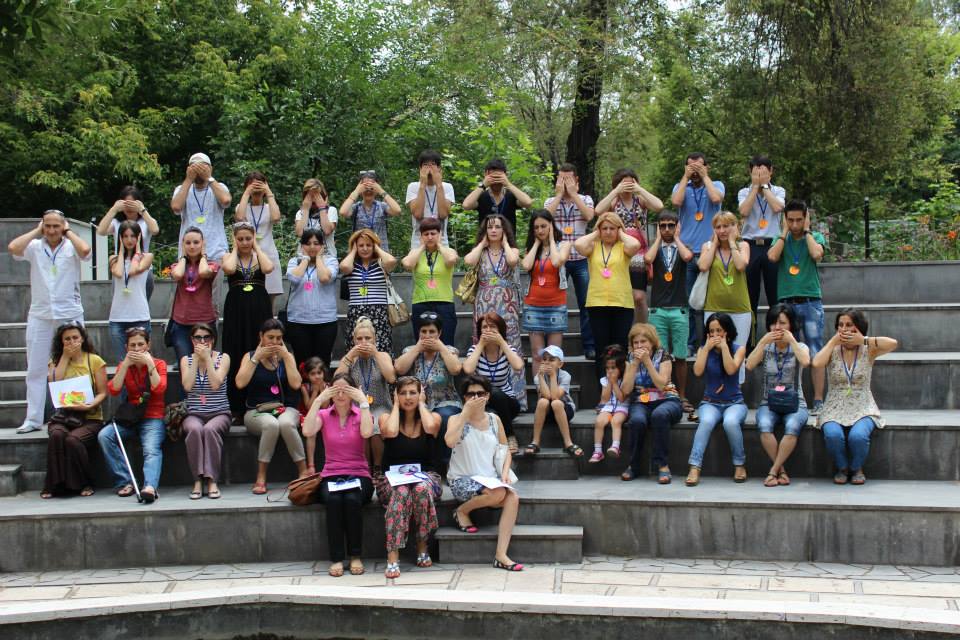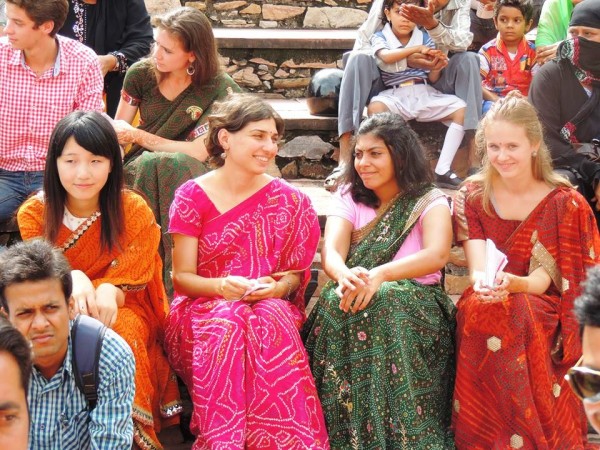⊗ Hepatitis (from the Greek hepar, the root being hepat-, meaning “liver” and suffix -itis, meaning “inflammation”) is inflammation of the liver and characterized by the presence of human liver inflammatory cells, which often leads to icterus, deterioration of appetite, general weakness, nausea, abdominal pain and so on.
⊗ There are 5 main types of hepatitis, A, B, C, D, E: Hepatitis B and C are viral infections, which are characterized by severe liver inflammation. The incubation (secret) stage of Hepatitis B may last for 3-6 months, and Hepatitis C from 2 weeks to 6 months. Viral provocative Hepatitis can stay in human body from 18 to 100 days and even more, entailing morbid phenomena. They are transmitted through blood (blood transfusion, multiple use of disposable syringes, renal dialysis), during unprotected sex.
We talked to “Positive People Armenian Network” NGO President, to member of “Advocacy and Research Group on AIDS” Anahit Harutyunyan about Hepatitis, its prevalence in Armenia and present problems.
– Anahit, what is the prevalence of Hepatitis in Armenia? How many people are infected and how is the patients’ treatment being organized?
According to the Ministry of Health (MoH), in response to the request made by our organization, the statistical forms confirmed by the MoH include only information about Hepatitis A and B. Hepatitis C-related data into question is currently under review. According to the same source there were Hepatitis B 73 cases in 2011 and 69 cases in 2012. There is no statistics about Hepatitis C, but some experts say about its high prevalence. As for treatment, then there is a drug for the treatment of hepatitis C, pegylated interferon (Pegasys), which, however, is quite costly. One ampoule costs 141,000 drams. And if we consider that it is necessary before starting treatment and during treatment to make some researches (they are not free), and if it’s needed to get an annual course of treatment, so approximately 16,000 U.S. dollars must be needed. The prescribed amount of treatment in Eastern Europe and Central Asia is as high as in other regional countries.
– Are there any free research centers in Armenia, if not, how much the treatment costs?
As far as I am aware, the detection of antibodies against Hepatitis C is paid research and costs 12.500 AMD. It is the cost of only 1 type of research.
– Which are those controversial issues related to Hepatitis and its treatment, which requires an immediate solution?
First, it is important MoH to pursue a series of steps, including:
- Hepatitis C input effective monitoring system, which includes the expansion of free exploration, including statistical records of Hepatitis C infected and an acute treatment needed people.
- Providing a specific plan with separate funding for the treatment of Hepatitis C. It should cover the treatment of many patients in need.
- Negotiations with the companies producing and importing Pegylated interferon for drug cost reduction.

“See no evil, hear no evil, speak no evil” flashmob was organized in Yerevan on the World Hepatitis Day 2013, which became a part of the World campaign that was registered in Guinness Records
– Anahit, I would like you to mention the effective methods of Hepatitis treatment.
A clear statistical information can be effective. On the result of the prevalence the disease can be brought out of the shadows and effective measures to eliminate the disease can be held.
– And is there any statistics on how many people leave the country in order to get medical treatment against Hepatitis?
There are some of my friends who have already left or are going to leave Armenia in order to get medical treatment abroad. Of course, there is no statistics about it. Unfortunately, at present, the government prefers to stay silent than to identify anything, to understand and to give a solution to problem.
“I came to the polyclinic to gather my documents to apply for disability class. I’m going through cabinets … Surgeon said: “Why do you want have a disability category?”. To what I answered: “I have Hepatitis C and unoperated coxartroza … I do not want but deserve it …” He said: “Go and heal your Hepatitis, then you may come!” I just told him: “How can I heal my Hepatitis? Are you aware of the prices?”
This man made me cry … Now I have to go to the infectologist, but I stand crying … In what a shit I am”.
– Sona-Marina Kocharyan
The lawyer of “Health Initiatives Center” NGO Violet Zopunyan commented on the issue to prevent it from a legal perspective: “I’ll give the link directly to the 38th Article of the Constitution of RA, according to which “each individual is entitled to medical care and service in the manner prescribed by law. Everyone has the right to free basic medical services.”
The list and the procedure provided by law.
In addition to the main source of law in the field of public health significance “Medical care and maintenance” of the Article 4 provides: “Everyone, regardless of nationality, race, sex, language, religion, age, disability, political or other opinion, social origin, wealth or other status has the right to medical care in Armenia.”
This means that everyone should have the opportunity to use and realize their rights. “Human Rights in receiving medical care” term’s feature is that they become the subject of legal regulation, medical and patient relationship, which must be protected medical staff (including administrative and nursing staff) and a three-level hierarchy’s weakest level, patients’ rights. The role of state is more than large, because the state is responsible for the protection and realization of human rights due to the positive obligations.
Despite the fact that the Ministry of Health of RA addresses the problem of hepatitis, many times said to include it in the future plans, the legislation now in force, in particular, the Hepatitis are not included in the list guaranteed by the government of the state of the health care services.
We had cases during our practice, when the violation of the right to receive treatment for Hepatitis happened.
One of the citizens of RA who had Hepatitis C, was trying for a long time to get the treatment in Armenia, he applied on a number of different government agencies and non-governmental organizations, but did not get any positive response. To the result, this type of lack of access to medical care made this person to leave his homeland in order to be able to receive treatment abroad in accordance with international standards.
Another patient, who was receiving treatment and using a “Pegintron” remedy, was spending too much money. To the result being under one year of treatment, patient died.”
“… I was born in Armenia, I want to live in Armenia, I have friends in Armenia, I have life in Armenia, I am a man of Armenia… Now I’m here in Europe to get the kindness that can’t be continued endlessly, Europe can’t accept an endless amount of patients. Europeans pay taxes and that taxes are giving us food, a home, money to live on for the treatments to finally cure the diseases from which the majority of the people emigrate because the treatment does not have a chance. It doesn’t mean they must die in their countries.”
– Lusine Vayachyan
Kamo Davtyan




